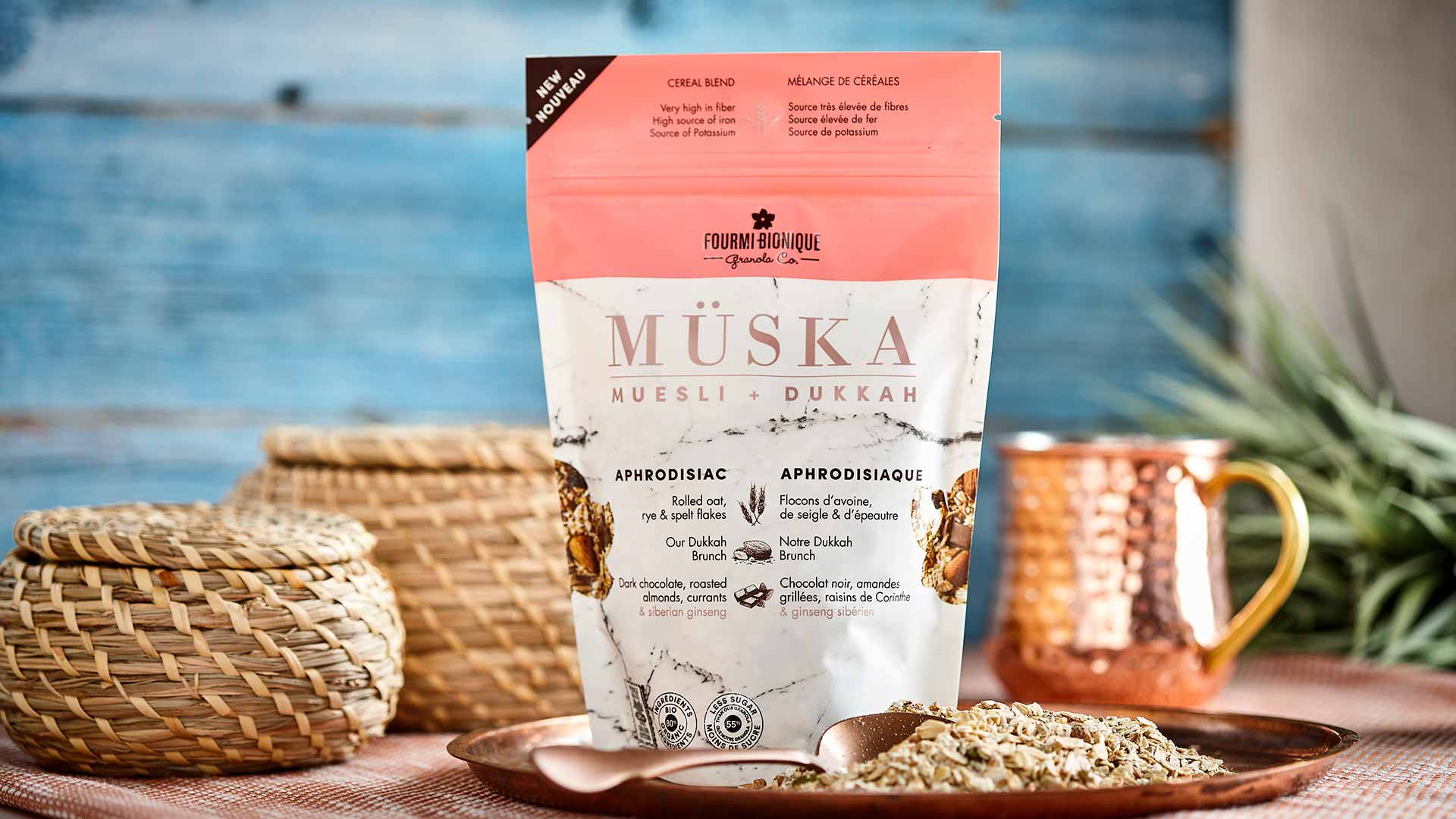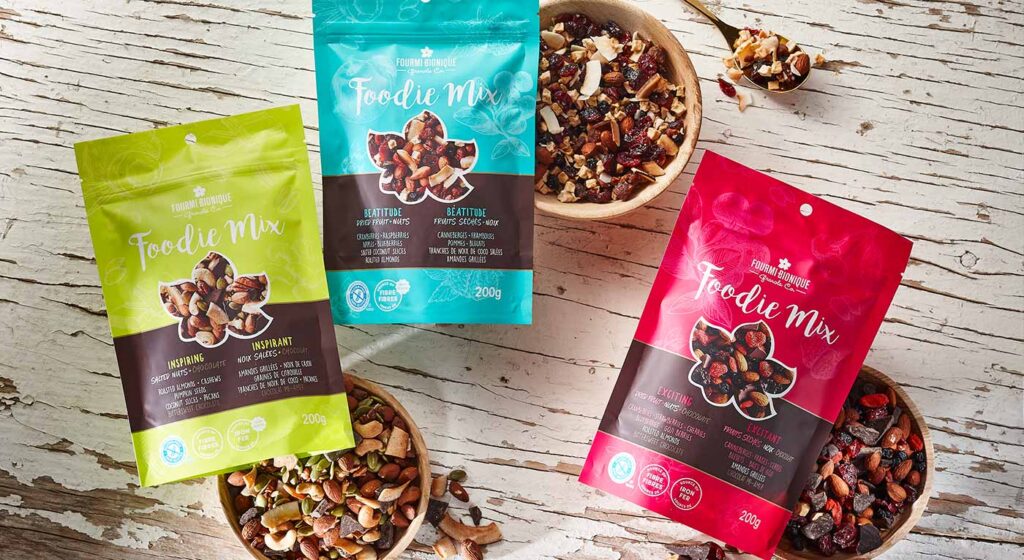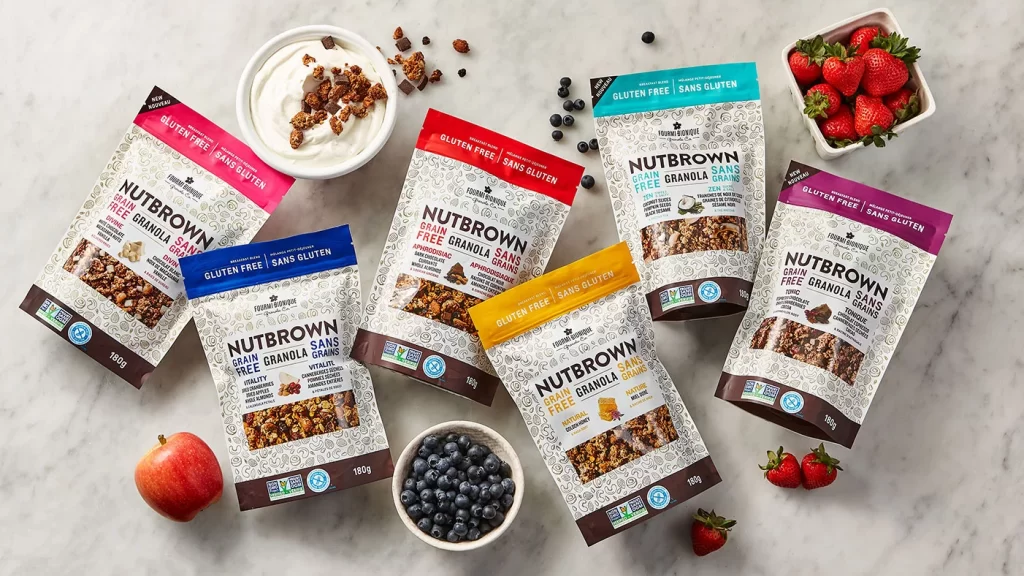Increasingly, everyone’s saying that cereals are an essential part of a healthy diet. But after decades of intensive marketing, it’s hard to know what exactly a “cereal” is and which brands to choose. Some people even avoid it out of fear, deeming it to contain too many calories or too much sugar to maintain a healthy weight. However, we’ll show that eating cereals every day for breakfast or as a snack is a great way to stay healthy.
Summary of the best cereals:
Why is it a good idea to have cereals for breakfast or a snack?
Regularly eating cereals, when carefully selected, can indeed provide you with many benefits:
- Vitamins and minerals—equally necessary for adults and children.
- Energy, for a good start and to carry on with the day without feeling tired.
- Quality plant proteins.
- Fibre – ideal for weight regulation (especially satiety), blood sugar, transit and overall gut health.
How do you choose the best cereals?
There are several ways to ensure you get a healthy intake of cereals. You can eat them raw, as flour, in bread… But the most enjoyable is certainly when they come in breakfast cereal form. Muesli, granola, oatmeal, the alternatives are numerous but require some caution, as not all are equally healthy.
Here are our tips on choosing the best cereals for breakfast or snacks:
- Stick to natural cereals free of artificial colours, flavours and saturated fats. These are commonly found in children’s cereals, although they can pose health risks.
- Avoid overly sweet cereals and those containing artificial sweeteners. It’s better to use a small amount of natural sweeteners (honey, maple syrup, dried fruit, etc.).
- If your goal is to lose weight, choose “natural” options, with no chocolate or dried fruit, for example. A plain muesli is a perfect option in this case.

The best cereals for your breakfast
After a night of fasting, your body needs energy and nutrients to keep it going all morning. This requires quality carbs, known as complex sugars, which release energy over time, thus avoiding blood sugar spikes. Here are some examples of cereals to choose from:
1. Barley:
- When eaten regularly, it’s one of the best cereals for lowering bad cholesterol
- Barley has high levels of B vitamins, and also provides vitamins A and C.
- It has a high fibre content for good digestive health
- It contains calcium, magnesium, copper and zinc in healthy amounts.
In flake form, you can use it as an oatmeal or as an ingredient for bread. We also include it in our Grand Granola line.
2. Oats:
This article explains it in detail – oats are a superfood!
- It contains vitamins B and E, as well as amino acids to take care of your liver and your heart.
- Oats are very high in fibre.
- Oatmeal is suited to diabetics, as it contains almost no sugar and is a complex carbohydrate.
- It’s naturally gluten free. If it’s certified gluten-free, it’s good for people with celiac disease.
- It has a high level of high-quality protein
- Oatmeal flour is rich in iodine
- It also contains potassium, iron, calcium and magnesium.
You’ll find oats in our Grand Granola line and our Müska mueslis. We also sell them in bulk for your recipes!
3. Rye:
Rye is one of the best cereals to include in your daily breakfast. That’s why we use it in some of our products.
- It contains high levels of protein and lysine.
- The complex carbohydrates in rye are absorbed very slowly and provide substantial satiety.
- It contains high levels of B1 vitamins, folic acid and vitamin B9.
- It contains selenium and zinc, both of which are necessary to improve the body’s absorption and metabolism of nutrients.
- It contains linoleic acid, an essential fatty acid of the omega 6 group that helps control triglycerides and improves fat absorption.
If you want to try some, you can find it in our Müska range. You can also make delicious rye bread toast!
4. Spelt:
Considered to be wheat’s predecessor, spelt is one of the best breakfast cereals and is therefore one of many ancient cereals we use for their many benefits:
- It’s an excellent source of fibre.
- Spelt is also a source of complex carbohydrates to provide energy over several hours.
- A very good source of vegetable proteins.
- It contains iron, manganese, niacin (vitamin B3) and phosphorus.


